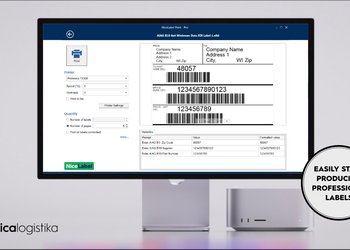From 2000 to 2024: A journey of sustainability in hotel energy management

In the dynamic realm of hospitality, a profound transformation has occurred—a shift from traditional practices to embracing sustainability as a core principle. From 2000 to 2024, the journey of sustainability in hotel energy management has reshaped industry norms, focusing on efficiency, cost-effectiveness, and environmental consciousness.
This evolution began with an initial understanding of sustainable hospitality, gradually influencing hotels to rethink their energy management strategies. Over two decades, the industry faced challenges, made incremental progress, and eventually witnessed a unified commitment to sustainability. This commitment not only redefined operational norms but also proved that sustainable practices in energy management could align with cost efficiency.
Early Challenges (2000-2010): Laying the foundation of sustainable hospitality
The early years of the 21st century posed formidable challenges for the hospitality industry regarding sustainability and energy management. This period marked the awakening of environmental consciousness within the sector, triggering the initial steps toward a more eco-conscious approach to operations.
At the turn of the millennium, sustainability was not a prevalent concern in the hotel industry. Awareness regarding environmental impact was limited, and there was often resistance to change due to traditional operational practices. Many hotels were accustomed to high energy consumption and lacked the awareness or incentives to adopt more sustainable approaches.
One standout initiative gaining global traction is the LEED green building program. Particularly favored by institutional investors for new-build projects, LEED certification has become a hallmark of environmentally conscious construction in the hospitality sector. This program not only emphasized energy efficiency but also addressed various sustainability aspects, from water conservation to the use of eco-friendly materials.
The financial crisis of 2008–2009 prompted a paradigm shift in the industry's focus. During this crisis, cost control emerged as a critical concern for hoteliers. Increased focus on saving costs made hotels take a closer look at their equipment and how they do things to see if there are better and more affordable ways. Hotels began implementing measures aimed at reducing utility costs, aligning economic resilience with environmental sustainability.
This era marked a transformative period where responsible business practices are not just commendable; they are becoming imperative for the continued success of the hospitality industry.
Transition to Efficiency (2011-2020): Embracing change and bringing innovation
In the decade spanning from 2011 to 2020, hotels embarked on a transformative journey, redefining the way they consume and manage crucial resources like energy, water, and waste. This period marked a significant shift towards efficiency, driven by the recognition of environmental responsibility and the pressing need for sustainable practices.
Hotels, known for their substantial energy consumption, took a closer look at their operations. The focus shifted towards reducing energy intensity, a task achieved through a technical approach known as commissioning. In simpler terms, it involved fine-tuning and optimizing various systems to use less energy. Front-of-the-house measures included upgrading lighting, minimizing unnecessary power usage, and improving the building's insulation. Back-of-the-house efforts concentrated on enhancing equipment, optimizing schedules, and ensuring proper ventilation, among other improvements. Importantly, hotels embraced technological advancements in renewable energy sources like solar, geothermal, and wind power, making these options economically viable.
By adopting energy-efficient technologies, implementing water conservation measures, and revolutionizing waste management strategies, the hospitality industry demonstrated its commitment to environmental stewardship, paving the way for a more sustainable and responsible future.
Current trends and overcoming challenges
The hotel industry is on the cusp of a significant transformation as sustainability takes center stage in its core operations. In the coming years, hotels are expected to weave environmental consciousness into their DNA, adopting circular economy principles, investing in renewable energy infrastructure, and actively engaging in biodiversity conservation. While these progressive measures bring a sense of rejuvenation to the industry, they also present challenges that require adept navigation.
Effective climate control is a critical aspect of hotel energy management in current times. Whether it's maintaining warmth during colder seasons or ensuring coolness in warmer climates, hotels universally require HVAC systems. To enhance environmental sustainability, numerous hotels are now adopting IoT-enabled energy management systems. These innovative systems actively monitor and adjust energy usage in real time, optimizing not only the performance of HVAC systems but also the output and management of hotel electronics and sensor systems. This not only results in more efficient temperature regulation but also leads to a substantial reduction in overall energy consumption.
In the journey towards a greener and more sustainable future, the strides taken in hotel energy management are pivotal. The evolution from traditional approaches to embracing innovative, IoT-enabled systems showcases the industry's commitment to reducing its carbon footprint.
Join the sustainability movement with Spica Hospitality
If you're intrigued by the possibilities of enhancing your hotel's energy efficiency, we invite you to explore the world of smart solutions with us.
Contact us today at info@spica.hr to discover how our expertise in hotel energy management can not only reduce costs but also contribute to a more sustainable and eco-friendly operation.
Let's embark on a journey together toward a future where efficiency and environmental responsibility go hand in hand. Reach out to us now for a consultation and let's make your hotel a beacon of sustainable hospitality.



